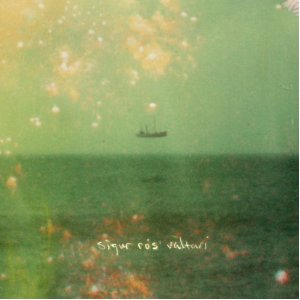Taking into account the bout of ill-health that post-rock appears to have been timidly battling for the past few years, Sigur Rós’ body of work is a genuine joy to revisit in such trying times. Their striking, emotionally frostbitten take on rock music provides the perfect antidote to the bloated mess of cynical imitators and tiresome clichés that the genre has become inundated with. Upon listening to their work, for one brief moment, you may even be able to forgive their faceless clones of their crass banality; the phrase ‘if you can’t beat them, join them’ springs to mind, and if the past eighteen years have proven anything, it’s that Sigur Rós most certainly cannot be beaten.
Whilst the majority of their original peers, though critically lauded, have managed to remain discreetly of cult status, the group’s ability to perfectly combine left-field innovation with memorable pop hooks has helped to propel them into the big leagues. With a plethora of gold records and festival headlining slots under their belt they have undeniably eclipsed their competitors in almost every sense yet, bizarrely, on their new record Valtari, they seem to have discarded of the very quality that originally earned them such mass adoration.
Considering the extremely fragmented and stilted nature of Valtari‘s creative inception, it’s still something of a surprise that the record has come to fruition at all. A year after what was described as an ‘indefinite hiatus’, it was confirmed by the group themselves that they were looking to create a new record consisting of material they described very vaguely as ‘melodic’ and ‘out there’, only to admit months later that they’d scrapped the entire thing. Upon hearing Valtari in full, one can’t help but yearn to hear the results that preceded the finished product, as the ultimate outcome regrettably sees Sigur Rós aimlessly paddling within the shallow end of their own comfort zone. They have never been less ‘out there’.
The fact that tracks such as ‘Varðeldur’ (an expanded version of a bonus track from their live record Inni) and ‘Dauðalogn’ (which sounds like an uncanny choral reimagining of the track ‘All Alright’ from their last studio release) have made the final cut may lead the listener to cynically question the validity of the group’s original claim that they scrapped the first draft of Valtari; did they really throw it away or have they merely recycled it? The meandering, unadventurous nature of the second half of the record implies that the creative process may have been far less calculated and infinitely more slipshod than the group initially let on, and this lingering uncertainty becomes ever more present as the record limps delicately towards its conclusion.
Ever since their debut record, the music of Sigur Rós has continually progressed and shifted in nature, whether it be towards glacial bleakness or explosive, big-band pop. Although the group have noticeably opted for the latter in more recent years, Valtari oddly sees them harking back to the barren fragility of Von and ( ), an incredibly strange move for a band so forward-thinking. There’s no doubt that the result is soothingly pleasant, but that’s damning with faint praise. Sigur Rós have never settled for ‘pleasant’. Anybody who has seen them live or heard the likes of ‘Popplagið’ (the crushing finale of ( )) would testify that they are an emotionally flattening force to be reckoned with. Ironically, that raw sonic fire appears to be main component of their past that they’ve failed to recapture here. Enjoyable though it remains, this is a record that has been eternally crippled by the standard set many times before it.
Valtari is a record that leaves many a conflicting emotion in its wake. It’s maddeningly disheartening to see a group of such capable creative stature take a step backwards in an effort to recreate their earlier work, yet the music on offer often proves a struggle to find fault with. Combining their trademark ethereal isolation with vocalist Jonsi’s flawless, soaring falsetto, tracks such as ‘Rembihnútur’ and ‘Varúð’ are clearly two of the most luscious pieces of their career yet, as the record marches on, its sense of variation and memorability seems to slowly disintegrate along with it, as if the band themselves are subconsciously aware that ‘Varúð”s brutal, pounding crescendo can never be bested and are content to let the rest of the album merely drift towards its ultimate climax.
Valtari sees a band of phenomenal ability punching drastically below their own weight. Sigur Rós have undoubtedly managed to retain their own unwavering individuality while offering the listener a pleasant reminder as to why they remain the genre’s champion behemoths but, sadly, it’s by pandering so fervently to their own musical staples and their desire to replicate the past that the group have produced their most unambitious work to date. Valtari is by no means a bad record; it’s extremely easy to enjoy. It’s even beautiful at times. Unfortunately, it’s even easier to forget.


